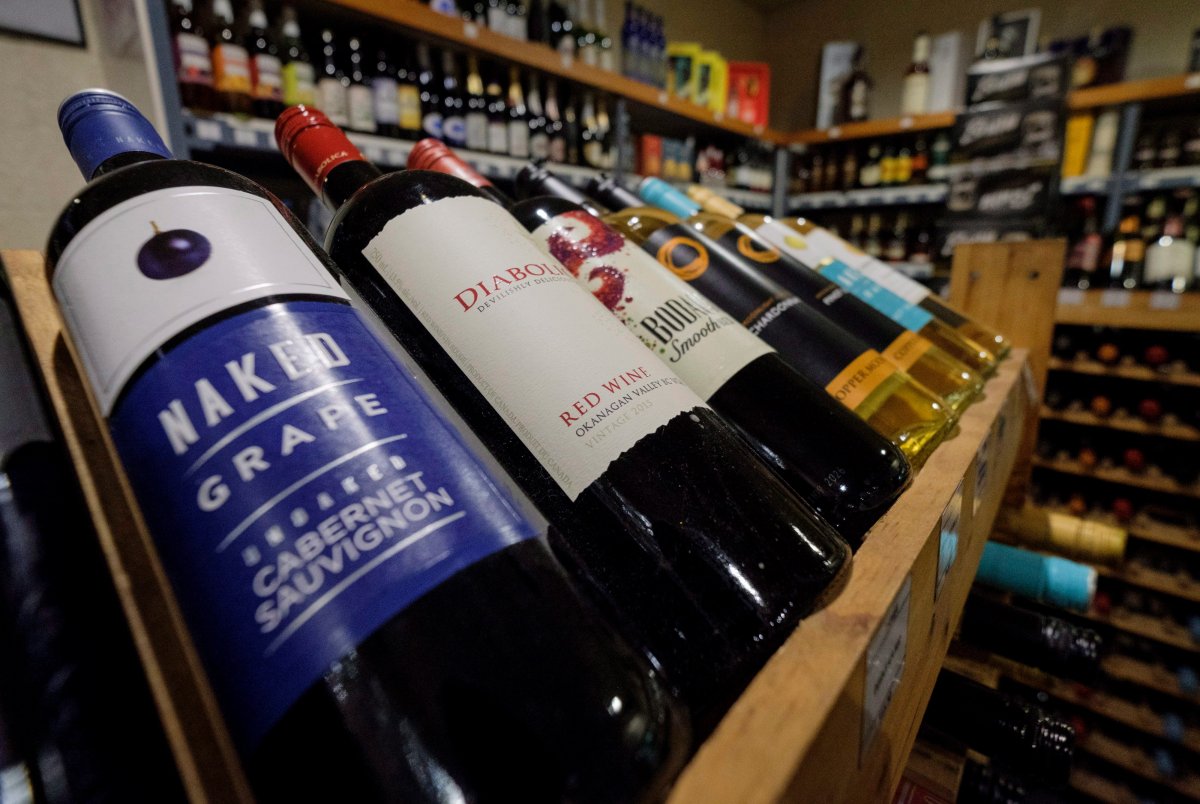Winemakers can only hope the scent of smoke that’s in the air across British Columbia from wildfires won’t swirl in the glass once this year’s vintages have been bottled.

Smoke-shrouded grapes can give an ashy, bitter flavour to wine and tests have been developed to help growers assess the quality of their grapes, said researcher Matt Noestheden, a PhD student at the University of British Columbia Okanagan in Kelowna.
READ MORE: Hazy skies but message clear — Similkameen Valley open for business
“For this season, time will tell. If I could (predict the quality) I would be a rich man,” he said in a telephone interview.
“We are currently working this year on ways that might be able to protect the grapes, but there is nothing that grape growers can do that will definitely protect the grapes.”
Red wine grapes, such as the Pinot Noir variety that is planted widely in the Okanagan, change colour from green to red in a process known as veraison. That process is underway now in the region, Noestheden said, adding that wineries dodged any danger last year because smoke from wildfires happened early in the growing season and not as the grapes were changing colour.
READ MORE: B.C.’s Road 13 named top winery in nation
“That two- to three-week period from full veraison until a couple of weeks after that is where the grapes seem to be the most susceptible to the problem,” he added.
The B.C. government’s air quality health index, which includes a measurement of particulate matter, listed the Okanagan as moderate on Tuesday but the rating was expected to climb to high by Wednesday.
READ MORE: B.C. wildfires map 2018: Current location of wildfires around the province
Bulletins warning of smoky skies from Environment Canada said communities in the Interior of B.C. would likely see further deterioration in air quality through the week as westerly winds are forecast to blow wildfire smoke into the region.
The B.C. Wine Grape Council has identified smoke taint as a priority for research and has helped fund the work being done by the University of British Columbia Okanagan to find ways of identifying the molecules involved in smoke residues.
READ MORE: How B.C.’s wine industry is keeping up with changing tastes
As for this year’s fires, the B.C. Wine Institute says it does not expect to see a “significant impact,” adding there is no evidence grapevines are affected by smoke from year to year.
“Researchers and vintners around the world are increasing focus on understanding smoke taint and investigating ways to prevent it,” the institute says in a document posted on its website.
It also says a smoky note in a wine is not the same as smoke taint.
Noestheden is working with Okanagan-based Supra Research and Development to identify chemical markers for smoke taint and he said wineries from B.C. to California are waiting for the outcome. He doubted Ontario wineries would be affected by wildfire smoke in that province.
“They don’t get the quantity of smoke that we do,” he said.
The tests developed with Supra research are being applied in field trials and the findings could offer solutions for grape growers in regions where wildfire smoke lingers.
“Now we feel that we can understand the chemistry enough that we can start to think about ways to insulate the grapes in the field,” said Noestheden.
“We are also looking at ways that winemakers can augment their fermentation to mitigate the impact that the smoke might have on the final taste and aroma of that particular wine.”
READ MORE: Extreme weather can’t smoke out winemaker’s spirits as Kelowna kicks off fall wine festival
The best solution this year for anxious winemakers is to make and sip a small batch of wine immediately after the grapes are harvested, he said.
“We are trying to push that timeline further back so winemakers can plan their fermentations accordingly, but right now the best advice is to make the wine and taste it.”
WATCH: Jules Knox reports on how B.C.’s wine industry is keeping up with changing tastes. (Aired March 2018)







Comments